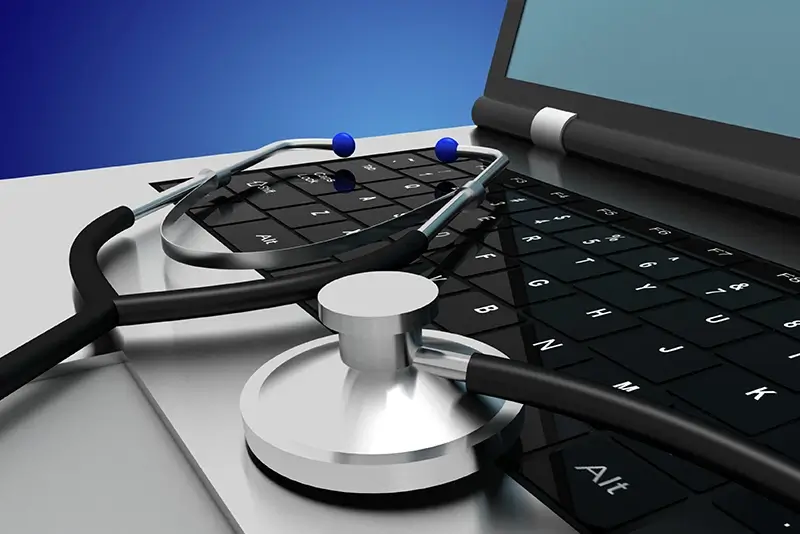Hospitals are flooded with paper, and dealing with it is a major challenge for staff, providers and even patients. Each day sees huge additions to this volume of information. Accuracy, clarity and timeliness is crucial when it comes to data in healthcare institutions, especially when it comes to executing digital transformation. That’s where data entry and data cleansing services come in. Outsourcing these critical tasks can help prevent data integrity failures that can result from incomplete, inaccurate, or out-of-date information. It can also support healthcare analytics to reduce costs and improve patient care.
Data Entry Support for Hospitals
Healthcare organizations need data entry to manage a wide range of paper records relating to patients, including demographic information, admission and chart details, treatments, prescriptions, vaccines and medications, and bills. They also store data on orders, inventory and stock, and staff records.
Errors and inconsistencies in hospital data can lead to reduced productivity, increased costs, reputational damage, and compliance risks. The most important risk of hospital data errors is patient safety. Data entry services play a key role in preventing these issues.
- Patient records: Patient data entry tasks relate to capturing patient details such as name, date of birth and contact information, medical history, lab reports, scans, etc. Medical data entry services ensure that all this information is collected and entered correctly and managed so that it can be stored on the hospital server for easy retrieval or additional processing. Likewise, the profiles of patients need to be properly managed.
- Personnel records: Like any type of business, healthcare also needs to maintain proper records pertaining to their employees. All information relating to human resources have to be kept in a systematic order to support decision -making in various areas.Personnel records contain complete details about all employees such as, name, date of birth, marital status, academic qualifications, professional qualifications, previous employment details, including past records, list sources, employees progress, medical reports, etc. Wages and salaries records comprise pay roll records, wage and salary information, leave records, and other benefit records. Training and development records have appraisal reports, and training schedules and methods. Other personnel records include sickness reports, safety provisions, medical history, insurance reports, etc.
- Equipment records: Hospitals are equipped with a variety of tools and equipment to give patients the best care possible. Other important records that hospitals maintain relate to staff, equipment such as medical devices, surgical tools and gloves, laboratory equipment, dressings, stethoscopes, and syringes, and bed number and availability. Keeping accurate records is key for maintenance equipment tracking, and reduced stress and errors. It will ensure data on equipment available on hand, help recognize inventory issues, and support informed decisions about device purchase.
- Claims: Data entry for healthcare claims involves capturing claims information from paper healthcare claims, insurance claims, and accident claims. Data from claims need to be keyed directly into the claims processing database. Paper claim forms can also be scanned and claim images cross-referenced in the data output files. All data is double-keyed to maintain the highest level of accuracy for quicker claims processing and claim collection.
- Medical transcription and billing: Both these areas involve a lot of data entry work. Physician dictated reports, notes and other information needs to captured correctly in electronic health records (EHRS) along with the dates. Data entry is also required for billing tasks such as charge entry and payment posting. Capturing the information in an accurate, structured and timely manner is essential for proper reporting and future reference.
- Laboratory reports: Laboratory data such as test and scan reports involve a lot of paperwork. Them test results and pathology reports transmitted to a patient’s EHR should be accurate. Laboratory data are stored in a structured format using standardized codes. Image based data has to be stored in the required format. Clean, error-free electronic information can is essential for clinicians to view all laboratory results in chronological order and be able to track new and overdue results to drive decision-making.
- Accounting entries: Hospital accounting collects, transmits, and interprets past and projected economic data for the purpose of determining the financial position and operating results of a hospital. Information relating to transactions, finances, claims, order and inventory should be entered. Data entry companies help with the different kinds of reports and information in hospital accounting. Accurate capture helps users easily access, analyze and evaluate the information.
Role of Data Cleansing Services in Healthcare
Data cleansing involves fixing incomplete, incorrect and inaccurate information in an organization’s database. Removing data that’s redundant, inaccurate, incorrectly formatted or structured, duplicative, or incomplete is crucial for any industry. Clean data is integral to the ability of healthcare’ organizations to carry out various activities including patient’s care, communication, and sharing of information.
Data cleansing services can ensure that healthcare data is relevant, error-free, and up-to-date by addressing a range of issues:
- Inaccurate data.
- Inconsistent data
- Corrupt data
- Duplicate data
- Incomplete data
- Redundant data
There are many complex regulatory mandates around healthcare data making data cleansing even more critical. Experienced data cleansing service providers will ensure that the data fed into the hospital data base is scrubbed, enhanced, and standardized to meet industry regulations.
In an increasingly digitally savvy and connected world, healthcare organizations are striving to ensure speed and efficiency in digital communications. It’s clear that outsourcing is the solution to improving a hospital’s data entry and data cleansing requirements and strengthen their position in the digital world. An expert can ensure that healthcare organizations have:
- Accurate, organized and clear information
- Easy access to critical information when required
- Structured data or data in the standardized format
Outsourcing companies providing data cleansing and data entry services use the latest technologies to help organizations move from outdated paper-based processes to digital document management.




